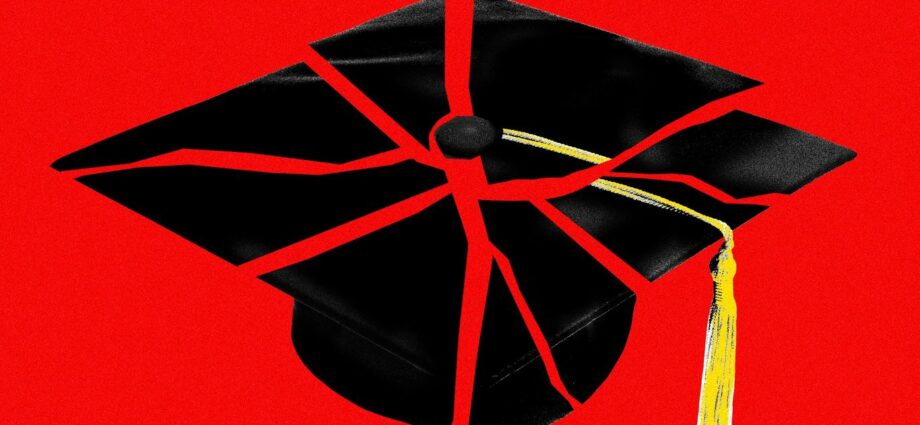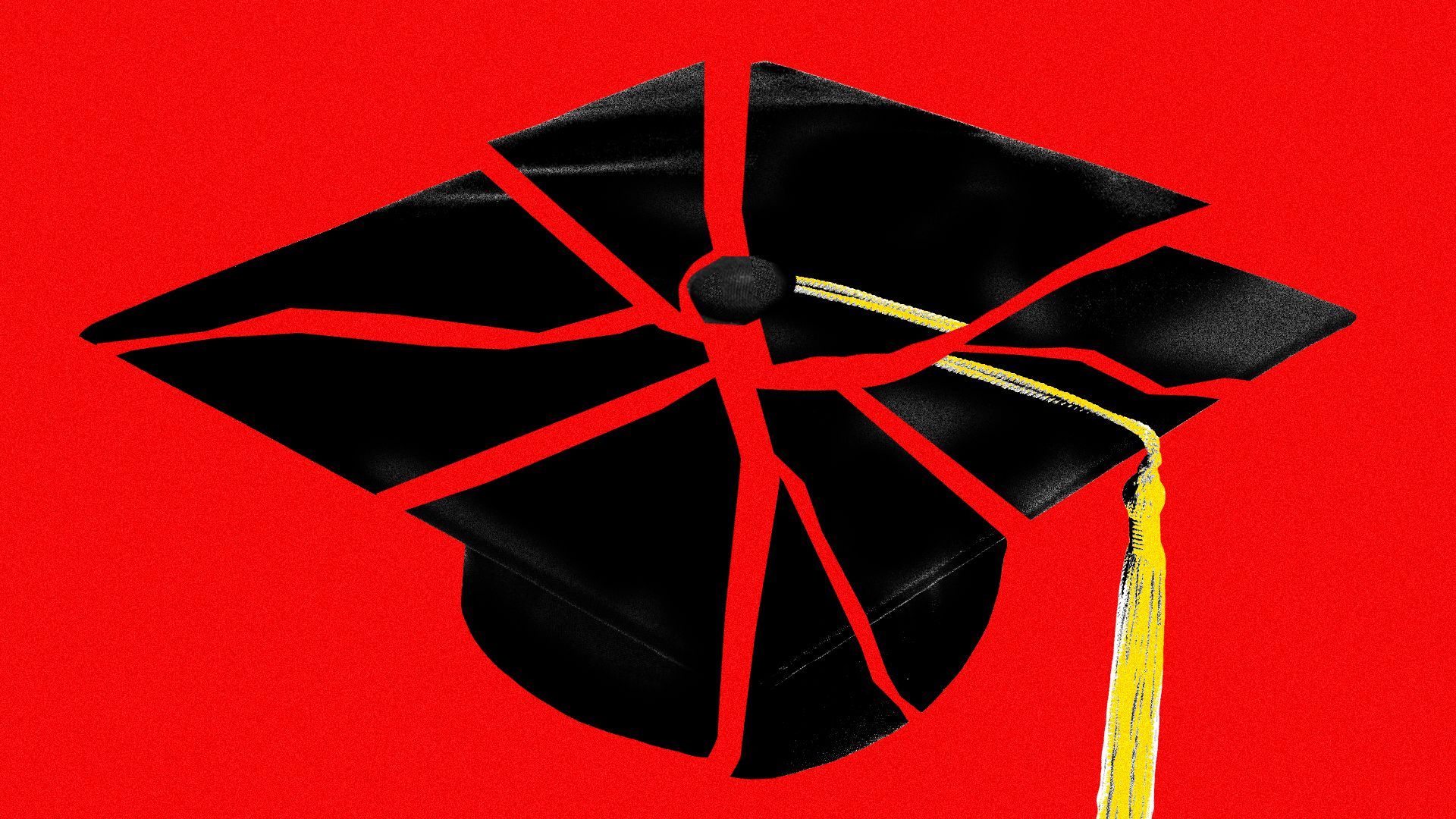Illustration: Shoshana Gordon/Axios
The end of affirmative action, at least on college campuses, is almost certainly near.
The big picture: The Supreme Court said in 2003 that colleges and universities could consider race as a factor when deciding which students to admit, for the sake of building a diverse student body. But now, the much more conservative court appears to be changing its mind.
Driving the news: The court is set to hear oral arguments on Monday over the admissions processes at Harvard and the University of North Carolina, both of which give a little extra weight to applicants who come from certain underrepresented groups.
- Life is full of surprises, but the court has sent just about every conceivable signal that it’s likely to put a stop to those sorts of policies.
Why it matters: Harvard and UNC — supported by a host of other schools, as well as business organizations — argue that diversity is essential to the educational experience and that the only effective way to ensure diversity is to make it an explicit part of the admissions process.
- But they’ll be making that argument to a court that is extremely skeptical of any sort of racial preference.
- “The way to stop discrimination on the basis of race is to stop discriminating on the basis of race,” Chief Justice John Roberts wrote in a 2007 opinion about the use of race when assigning kids to public schools.
- From voting rights to K-12 education to employment law and probably now college admissions, the court over the past several years has consistently knocked down programs that tried to correct racial inequities by explicitly taking race into account.
This is all largely one man’s doing. Conservative activist Ed Blum has organized and funded a slew of high-profile lawsuits explicitly designed to get the court to strike down affirmative action.
- He orchestrated a 2013 case in which a white student sued because she didn’t get into the University of Texas — and the sequel, in which the same student came back to the high court again in 2016.
- This time around, the named plaintiffs are not only white students but also Asian Americans, who say they’ve been discriminated against because of the way Harvard and UNC give preference to applications from Black and Hispanic students.
- This is not a particularly secretive endeavor. Blum is open about the fact that this is, effectively, a campaign, and that he is the campaign manager.
- "I'm a one-trick pony," Blum recently told Reuters. "I hope and care about ending these racial classifications and preferences in our public policy."
- Blum also had a hand in the landmark case that nullified a key section of the Voting Rights Act — another instance in which the conservative court said policies designed to offset a history of discrimination had outlived their usefulness.
Between the lines: The fact that it’s a 6-3 conservative court is part of the reason legal experts believe affirmative action is likely to lose, but there are other signs, as well.
- Lower courts in both the Harvard and UNC lawsuits upheld the schools’ admissions policies. If a majority of the Supreme Court thought those were the right decisions, there wouldn’t be much reason to agree to hear an appeal.
- The Supreme Court also took the UNC case before a federal appeals court had ruled. Taking a case faster than usual, with no disagreement among lower courts, is widely seen as a sign that the Supreme Court wants to at least chip away at its affirmative-action precedents, if not overturn them — and as we’ve all learned, this court is willing to go all the way when it wants to.
- Justice Ketanji Brown Jackson has recused herself from the Harvard case. She was unlikely to be on the winning side anyway, but without her vote, it’ll be that much harder for the liberals to cobble together a majority.
What’s next: Oral arguments begin at 10am Monday. The Harvard case will go first, then UNC. You can listen to the arguments live on the court’s website.
- A ruling is expected by the summer.
Source: Read Full Article
-
Canada Acquiring 88 US-made F-35 Stealth Fighter Jets
-
Ex-Trump lawyer Michael Cohen will testify at grand jury, attorney says
-
Labour council admits to using diesel generators to charge electric lorries
-
Keir Starmer goes on foul mouthed rant about ‘bullsh***er Boris taking p*ss out of public’
-
Dallas ISD Will Require Clear Backpacks for Secondary Students After Uvalde Mass Shooting


